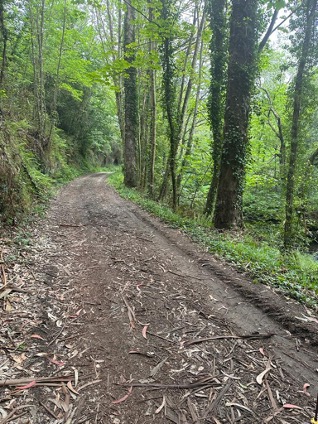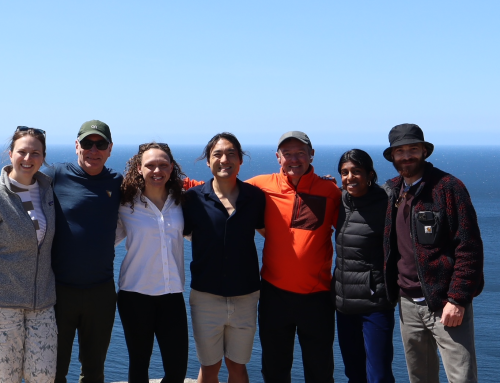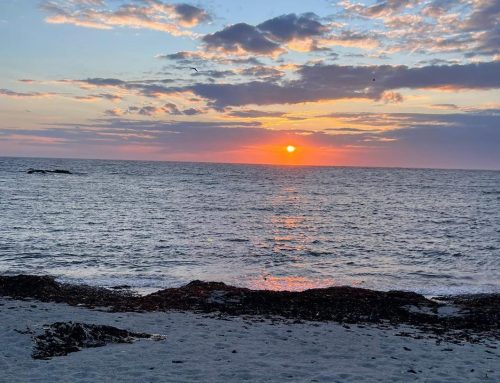Nel mezzo del cammin di nostra vita
mi ritrovai per una selva oscura,
ché la diritta via era smarrita
Midway upon the journey of our life
I found myself within a forest dark,
For the straightforward pathway had been lost.
Dante Alighieri, Inferno: Canto I, The (Divine) Comedy
At some place in many of our lives, we reach a point or go through an experience that stops us, that feels foreign, that seems to throw away the compass directing the vector moving us forward, that exiles us from others and from ourselves. And when this happens, when it seems most certainly that we have run out of choices, we are forced to start, perhaps for the first time, in the only place that we can, at the intersection of the here and the now. There is not when, nor then, or way back when, or if only then. There is only where we are standing, and the next step right in front of us.
This happened late in the 13th century as Dante found himself on the wrong side of political and military conflicts against the power of the papacy, and was exiled from his homeland, the Republic of Florence, never to return. Despite desiring to be brought back to Florence on honorable terms, he did not return and died years later in Ravenna of quartan malaria, On his grave appears a verse of Bernardo Canaccio, a friend of Dante, dedicated to Florence: parvi Florentia mater amoris-Florence, mother of little love. An empty tomb was built in Florence in the 1820s, the city having regretted exiling Dante, and on it reads the following: Onorate l’altissimo poeta-Honor the most exalted poet, a quote from the fourth canto of the Inferno.
Active in public life, Dante entered the Physicians’ and Apothecaries’ Guild. His writing of the Comedy with its use of the vernacular Italian of the Tuscan region with influences from Latin and other regional dialects became a cornerstone of the evolution of Italian as an established literary language, setting a precedent and allowing literature to be published for a wider audience, and setting the stage for wider literacy in the future. Imagine, there you are in the only world you have known, the world you love, with your passion for creating and for civic engagement, and you are exiled from that world, knowing that to return to it is to be condemned to death, and that to remain exiled is to live with an emptiness so large that it seems like you are literally being pulled into the underworld. And then to create, out of that, a work that reverberates in a way that liberates others, opens the world of words and ideas, feelings, and experiences, to not only the few but to the masses.
One of my moments of exile came when I moved out of the home where I had raised my children, having sent them off to school and onward, out of which I practiced medicine as a way of being and as a way of providing, knowing that my life together with my children’s mother had come to an end. Staring up at the ceiling in the apartment I moved into felt like staring into a forest dark, and the straightforward path that I had forged, that seemed to make sense, that seemed to be mirrored in images of success that I saw in my communities, in media, in my own expectations and desire to not be touched by disappointment and uncertainty, that straightforward path clearly had been lost. Exiled I was in that moment, and all I could literally do was take the one next step. For me, the next step, although not clear, was about connection. Connecting to myself, which I had plenty of time alone to do in my new digs, and to others, which I had plenty of time to consider what was important to me in relationships and who to reach out to for support.
Yet, however painful, and confusing and disrupting that experience was, that connection particular to myself showed me that there was always a home inside, that sense of place in the world that is beyond location, GPS coordinates, or even time. And that place possibly originates from family, parents, their parents, and their parents’ parents, whose common story include literal exile, and so on. I don’t really know the full origin of that locus, and it remains a bit of a mystery to me. Yet it is there that the instinctual fight-flight-freeze-connect machinations of the body and mind show what the next steps are. They do not reveal beyond the next step or two, just and only the next steps. They show that home is always here. It is simply right here.
So, I now see this gift of the physical exile, emotional exile, and a kind of cognitive exile that occurs in a regular human life. Where we can take up residence whenever and wherever we find ourselves. This experience of exile and home is true for us, for our loved ones, for those whom we care, and even for the stranger to us. And I think it must have been true for Dante as well. Otherwise, how could he have given his genius to this world?






Leave A Comment